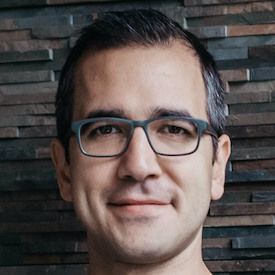I’m frequently asked to give keynotes on the future.
Sometimes, the request involves a keynote on forecasting: They want me to speak on how to spot trends and predict the future.
I almost always decline those requests.
Predictions are a trap, I tell them. I don’t believe in predictions and I can’t predict how things will pan out. That said, if you’re interested in creating the future (instead of trying to predict it), I’m your guy.
I understand why predictions are popular. They appeal to human nature. They create a sense of certainty in an uncertain world.
But they are wrong far more often than we assume.
“The growth of the Internet will slow drastically,” wrote Paul Krugman in 1998. “Most people have nothing to say to each other! By 2005 or so, it will become clear that the Internet’s impact on the economy has been no greater than the fax machine’s.”
That one may have slightly missed the mark. Krugman went on to win the Nobel Prize in Economics.
Krugman’s missed prediction about the Internet isn’t an outlier. University of Pennsylvania professor Philip Tetlock designed a study to determine the accuracy of predictions. The study involved 284 experts whose professions involved “commenting or offering advice on political and economic trends.” Between the mid-1980s and 2003, Tetlock collected over 82,000 predictions.
The experts performed terribly. They failed to beat a simple algorithm that assumed that what happened in the past would continue in the future—for example, that the current GDP growth rate of 1 percent would remain the same in the next two years. The experts’ only victory was over Berkeley undergraduates, “who pulled off the improbable feat of doing worse than chance,” Tetlock writes.
“If you take shots all day, you’ll eventually hit the target. But that doesn’t make you a good marksman.”
Extra education or experience made no difference. Experts with a doctorate failed to outperform experts without one. Seasoned experts failed to outperform the amateurs.
Yet the experts who make inaccurate predictions aren’t called out. They often get away with it. People rarely say, “Maybe you should sit this one out, Dr. Stu, since 90 percent of your economic predictions have been proven wrong.” By then, we’ve already moved on to the next, shiny, exciting piece of breaking news.
Every now and then, Dr. Stu will get a prediction right—but not because he’s got divine levels of foresight. It’s because he got lucky. If you take shots all day, you’ll eventually hit the target. But that doesn’t make you a good marksman.
The problem isn’t just with experts. No one is great at predicting the future. Much of life can’t be forecasted, diagrammed, or reduced to a PowerPoint deck. When the future doesn’t match our expectations, our projections get thrown out (or worse, they’re still followed).
Think about all the time and energy you’ve spent worrying about the future and brooding over predictions—political predictions, stock market predictions, Covid-19 predictions, to name just a few.
Worrying about what you can’t control is a giant waste of your imagination.
So let go of what you can’t control. Focus only on what you can.
And stop trying to predict the future. Create it instead.
Ozan Varol is a rocket scientist turned law professor and bestselling author. Click here to download a free copy of his eBook, The Contrarian Handbook: 8 Principles for Innovating Your Thinking. And download the Next Big Idea App to enjoy a “Book Bite” summary of his latest book, Think Like a Rocket Scientist.































